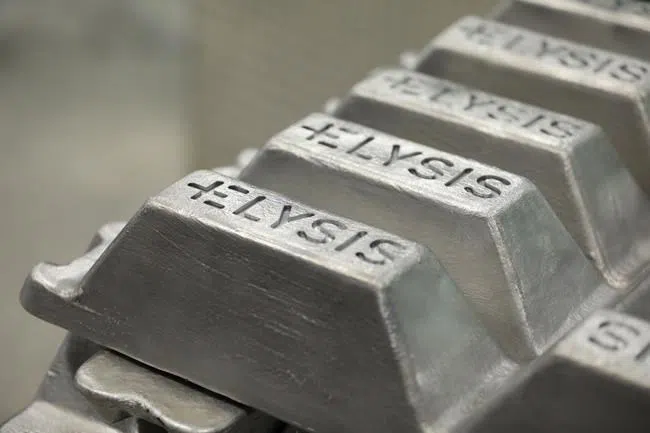
Federal and Quebec governments fund aluminum smelting breakthrough
SAGUENAY, Que. — Aluminum giants Alcoa Inc. and Rio Tinto Group are teaming up with Apple Inc. and the federal and Quebec governments to commercialize the world’s first carbon-free aluminum smelting process.
Described by the companies as the most significant innovation in the aluminum industry in 100 years, the new process eliminates greenhouse gas emissions from traditional smelting by instead producing oxygen.
Ottawa, Quebec and Apple Inc. are investing in a joint venture between Alcoa and Rio Tinto called Elysis, which will commercialize the new, more environmentally friendly way of producing aluminium.
Elysis will have its headquarters in Montreal and a research facility in the Saguenay-Lac-Saint-Jean region.
